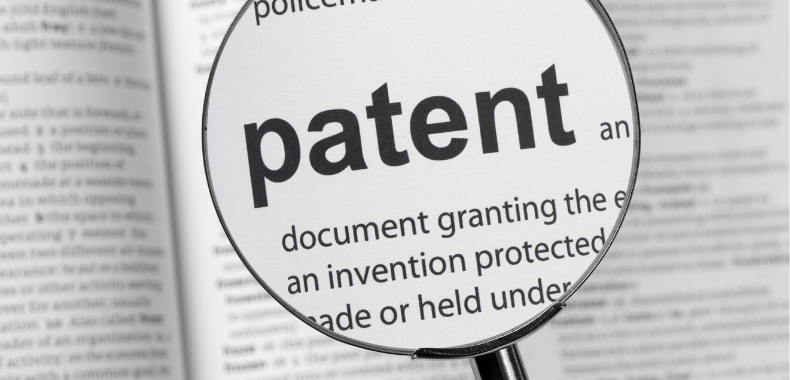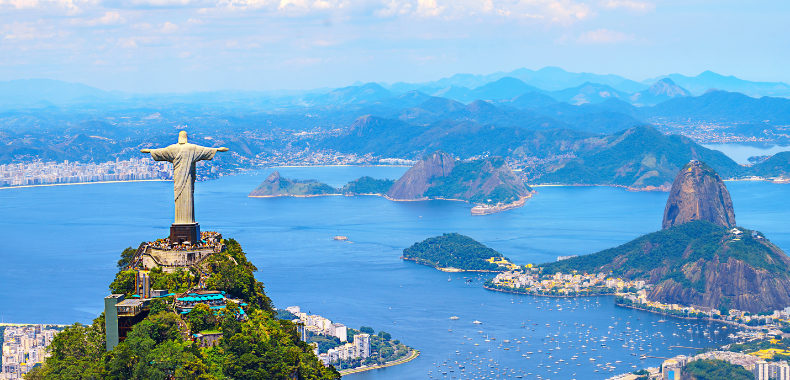Recently, Elon Musk made an appearance on CNBC’s “Jay Leno’s Garage” to host a tour around his SpaceX Star base facility in Texas [1].
Besides showing the amazing things Elon and his SpaceX crew have been building for their Mars Mission, when asked by Leno about “regulations and red tapes” regarding his inventions, Musk responded:
“Something that we should be worried about is that the rules and regulations get more and more every year. […] In the past, war has wiped away bad rules and regulations, but also, we prefer not to have war as the means of getting rid of rules and regulations. In the absence of that, what happens is there are more laws and more regulations every single year, and eventually we won’t be able to do anything. […] So, we do need to be cautious about overregulating and having too many rules and regulations basically stopping innovation and actually ultimately limiting the advance of civilization.” [SIC]
Moreover, when asked about the patents over his techniques to build his rockets, Elon said that he and his crew don’t patent things and don’t care about it either, opening source of all his “patents” so that anyone could use them.
Musk finished his statement by saying that “patents are for the weak”, “generally used as a blocking technique” and not actually helping advance things, but “stopping others from following you”.
It’s not the first time Musk shared his opinion regarding intellectual property rights, specifically patents. In 2014, “in the spirit of the open-source movement, for the advancement of electric vehicle technology” [2], Tesla announced that it would not initiate patent lawsuits against anyone who, in good faith, wanted to use its technology [3], stating that patents “serve merely to stifle progress, entrench the positions of giant corporations and enrich those in the legal profession, rather than the actual inventors”.
Without failing to recognize Musk’s successful trajectory, it’s important to respond to some of his statements.
1. Firstly, it’s important to highlight that a patent is a title of exclusivity of exploitation granted to the holder of the invention – a product or a process that provides, in general, a new way of doing something, or offers a new technical solution to a problem [4] – by the State.
In most countries [5], for an invention to achieve a title of patent, it must go through a rigid process of study by professionals who will examine requirements for novelty (the object under analyses must be different from anything seen before in the market), inventive step (it must also contribute to the advancement of the technique or technology of a new product or new process), and industrial application (it must contain proof of human intellect effort). Without any of these requirements, the title won’t be granted.
Which means, having a patent under your archive of creations is the same as attesting your ability to create something never seen before in the market with an extent of utility for society. Which cannot be misled as a curse for any business.

2. The purpose of an intellectual property system and its protection resides on the promotion of the stock of knowledge available to society, as well as its dissemination and use at the end of the exclusivity period.
About this purpose, the Brazilian IPO makes a good point [6]. In summary, the importance of a patent resides on the empowerment of the patent holder during the period of its validity. Which does not equal as a blockage of use of the invention, but as a form of knowledge over the market, giving the creator the ability to know what markets show interest in its invention, as well as the purpose of its exploitation – which meets Elon’s interests, as he makes some of his creations available to the public to encourage innovation, and by knowing the ones that are using his creations, he will be able to form an even better data to do so.
3. Besides that, it’s important to highlight that a patent’s protection is not perpetual. Thus, when its validity comes to an end, the information transferred to the database of the IPO system returns to the public domain. This means that the information does not go missing even after years of use. And even though Elon perceives as if his inventions won’t have any use in the future, there are no doubts that they will always carry a lot of useful information, which can be broken into pieces and studied even further [7].
4. The strategy used by Elon and his team does not apply to the common market. Entrepreneurs must have in mind that Elon’s beliefs rely on a market that does not have a considerable competition.
In this sense, having the control over an invention can be used as a market strategy. Imagine being Steve Jobs and creating the iPhone, while sharing space with companies such as Samsung or Motorola. Perhaps you have on your hand a competitive advantage worth the protection [8].
In the face of all these reasons, it’s not fair or clever to believe that patents are bad for innovation or a threat to your company, especially when viewed through the lens of a more palpable competitive market.
—
Author: Juliana Kaomy Mikado, Junior Associate at Peduti Advogados.
Source:
[1] ELON MUSK SHOWS JAY LENO HIS SPACEX ROCKETS | Jay Leno’s Garage Full Episode. Directed by: Marcia Xinatris. Produced by: Marcia Xinatris. Youtube. 23 de set. de 2022. Duration: 44’26’’. Available at: <https://www.youtube.com/watch?v=goT5gW57Chc&t=329s> Access on September 28th, 2022.
[2] MUSK, Elon. All Our Patent Are Belong To You. Published on July 12th, 2014. Available at: <https://www.tesla.com/blog/all-our-patent-are-belong-you> . Access on September 28th, 2022.
[3] Patent Pledge. In Additional Resources. Published on November 7, 2014. Available at: <https://www.tesla.com/legal/additional-resources#open-source>. Access on: September 28th, 2022.
[4] Patents. In. Wipo.int. Disponível em: < https://www.wipo.int/patents/en/>. Access on: September 28th, 2022.
[5] To look for more information regarding the countries that contract under the Paris Convention, which rules over industrial property in the widest sense, including patents, trademarks, industrial designs, utility models, service marks, trade names, geographical indications and the repression of unfair competition. Click here: https://www.wipo.int/export/sites/www/treaties/en/docs/pdf/paris.pdf
[6] Instituto Nacional da Propriedade Industrial (Brasil). Patente: da importância e sua proteção: patente de invenção e modelo de utilidade. / Instituto Nacional da Propriedade Industrial; organização: Elizabeth Ferreira da Silva; autores: Elizabeth Ferreira da Silva [et al.]; revisão: Sérgio Bernardo. Rio de Janeiro: INPI, 2021. In free translation: “A patente outorgada pelo estado tem como condição a descrição do invento para que um técnico possa reproduzir a tecnologia ao término da vigência da proteção. A exclusividade do mercado, durante o tempo da vigência, empodera o titular da patente na comercialização do invento e no controle do mercado, de acordo com as suas estratégias. Portanto, o conhecimento tecnológico protegido é passível de troca entre os agentes econômicos. A proteção agrega valor ao estabelecer a exclusividade temporária sobre o conhecimento, impondo limite a sua comercialização, concedendo lhe valor de troca e solicitação de autorização prévia para fins comerciais, apoiados numa relação contratual entre as partes da contratação. Portanto, o contrato é o instrumento para o estabelecimento das condições da exploração do conhecimento protegido. Quando a proteção termina, a informação já revelada, retorna ao domínio público, ou seja, ao acesso de todos à comercialização, sem que seja necessária autorização prévia. O domínio público disponibiliza a sociedade o conhecimento para produção, comercialização e o ingresso de outros agentes econômicos no mercado, o que aumenta à concorrência e dinamiza o ambiente econômico, contribuindo para o crescimento econômico e a geração de empregos.”
[7] Instituto Nacional da Propriedade Industrial (Brasil). Patente: da importância e sua proteção: patente de invenção e modelo de utilidade. / Instituto Nacional da Propriedade Industrial; organização: Elizabeth Ferreira da Silva; autores: Elizabeth Ferreira da Silva [et al.]; revisão: Sérgio Bernardo. Rio de Janeiro: INPI, 2021. “O sistema de patente exige a descrição da invenção de forma a permitir a reprodução do invento tecnológico contribuindo para o aumento do nível do estoque de conhecimento à sociedade, evitando retrabalho e custos associados ao que já foi revelado. Portanto, a busca do conhecimento tecnológico na base de dados de patentes permite acompanhar a evolução tecnológica até as tecnologias mais pioneiras, na fronteira do conhecimento. Como o conhecimento é tornado público, pela publicação do conteúdo depositado nas bases dos Escritórios nacionais ou regionais de depósito, as comunidades acadêmicas- científica e empresarial se beneficiam do conhecimento revelado para promover o avanço das pesquisas e desenvolvimentos na geração de novos conhecimentos, a partir do que há de mais pioneiro no estado da técnica. Portanto, para fins de pesquisa o conhecimento protegido não impede o avanço científico e tecnológico.”
[8] Furthermore, alongside Elon’s opinion, in 2021 an article was published on the Harvard Business Review exploring ownership engineering strategies, which includes three market approaches: (i) Tolerating Theft (achieve consumers through aspiration and taste); (ii) forgoing ownership (“Being first is often reward enough, even without any additional ownership incentives”); and (iii) leaning into ambiguity (“It’s better to ask for forgiveness, than permission.”). Even though these are strategies followed by big companies as SpaceX, Microsoft and HBO, most inventions depend on a patent’s protection as they are part of a production process, for instance technologies related to sustainable agriculture, since this type of technology affects the final value of the product, but not the product itself. (HELLER, Michael. SALZMAN, James. Elon Musk Doesn’t Care About Patents. Should you? In. Harvard Business Review. Published on March 04th, 2021. Available at: < https://hbr.org/2021/03/elon-musk-doesnt-care-about-patents-should-you>. Access on: September 29, 2022.)
VEJA, Nicolas. Elon Musk says ‘patents are for the weak’ as he talks Starship rocket, tours SpaceX Starbase with Jay Leno. In CNBC MAKE IT. Available at:<https://www.cnbc.com/2022/09/21/why-elon-musk-says-patents-are-for-the-weak.html> Access on September 29, 2022.
FERREIRA, Ademir Antônio. GUIMARÃES, Edilson Rodrigues. CONTADOR, José Celso. Patente como Patente como instrumento competitivo e como fonte de informação tecnológica. Gest. Prod., São Carlos, v. 16, n. 2, p. 209-221, abr.-jun. 2009.
—
“If you want to learn more about this topic, contact the author or the managing partner, Dr. Cesar Peduti Filho.”
“Se quiser saber mais sobre este tema, contate o autor ou o Dr. Cesar Peduti Filho.”








